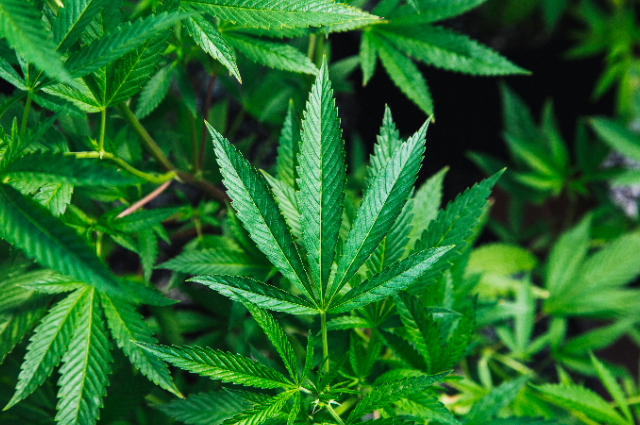
Photo by Rick Proctor on Unsplash
Introduction
In recent years, the global conversation on cannabis legalization has gained momentum, with numerous countries moving towards decriminalizing or fully legalizing the substance for medical or recreational use. In India, however, the debate remains complex, interwoven with cultural traditions, legal challenges, and socio-economic concerns. This article explores why the legalization of cannabis in India could be a progressive step, touching on historical context, medicinal benefits, economic potential, and social implications.
1. Historical and Cultural Significance
Cannabis has deep roots in Indian culture, dating back thousands of years. The plant is mentioned in ancient texts such as the Vedas, where it was referred to as "bhang" and used in religious rituals, spiritual practices, and traditional medicine. Even today, cannabis in the form of bhang is legally consumed during festivals like Holi and Shivratri, highlighting its cultural relevance.
Despite its historical use, the Narcotic Drugs and Psychotropic Substances Act (NDPS) of 1985 criminalized the cultivation, sale, and consumption of cannabis in India. This law created a disconnect between the country's long-standing association with the plant and its modern legal framework, putting it at odds with its cultural legacy.
2. Potential Medicinal Benefits
One of the most compelling arguments for cannabis legalization is its proven medicinal properties. Research from around the world has shown that cannabis can help manage conditions like chronic pain, anxiety, epilepsy, and even certain symptoms associated with cancer. The plant’s active compounds, THC (tetrahydrocannabinol) and CBD (cannabidiol), have demonstrated the ability to alleviate pain and inflammation without many of the side effects linked to traditional medications.
In a country like India, where access to affordable healthcare is still limited, especially in rural areas, legalizing cannabis could provide a low-cost, natural alternative for pain relief and various treatments. It also aligns with traditional Indian medicine systems like Ayurveda, where cannabis has been used for centuries.
3. Boosting the Economy
The economic benefits of legalizing cannabis are substantial. In countries like the U.S. and Canada, the legalization of cannabis has created a booming industry, generating significant revenue and providing employment. By regulating and taxing cannabis, India could tap into a lucrative market, creating a new revenue stream that can contribute to the national economy.
Given India’s ideal climate for cannabis cultivation, the country could become a leading producer in the global cannabis market. This would not only open up international trade opportunities but also benefit local farmers by offering them an alternative crop, potentially reducing their dependence on water-intensive and volatile agricultural sectors.
4. Reforming Criminal Justice
The current laws around cannabis in India disproportionately affect marginalized communities. The NDPS Act has led to the imprisonment of thousands, often for minor offenses like possessing small amounts of cannabis. This adds pressure on an already overburdened legal and prison system.
Legalization or decriminalization could significantly reduce the number of cannabis-related arrests and help shift law enforcement focus to more serious criminal activities. Additionally, it would eliminate the stigma surrounding cannabis users, many of whom are either experimenting or self-medicating, allowing them to seek help without fear of punishment.
5. Addressing Social and Health Concerns
While there are clear advantages to legalizing cannabis, there are valid concerns that need to be addressed. Opponents of legalization worry about increased substance abuse, especially among young people. However, evidence from countries that have legalized cannabis suggests that regulated markets can help control access to minors and reduce illegal trade.
In India, any move toward legalization would need to be accompanied by strong regulations. These could include age restrictions, quality control measures, and public awareness campaigns to educate people about responsible cannabis use and its potential risks. This would help mitigate potential health and social consequences while reaping the benefits of legalization.
6. Global Trends and India’s Position
Globally, more countries are rethinking their cannabis policies. Canada, Uruguay, and several U.S. states have fully legalized cannabis, while others, such as Thailand and Mexico, have moved towards decriminalization. As more nations embrace these reforms, India has an opportunity to join the global trend and reclaim its cultural relationship with the plant.
Furthermore, legalizing cannabis could enhance India’s position in the international medical cannabis industry. The country could develop its own cannabis-based pharmaceuticals for export, positioning itself as a key player in a rapidly growing global market.
Conclusion
The debate on cannabis legalization in India is multifaceted, involving cultural, economic, and legal dimensions. While concerns about health and social consequences exist, the potential benefits, including economic growth, criminal justice reform, and the availability of alternative healthcare options, are significant.
By legalizing cannabis, India could bridge the gap between its rich cultural history and modern legal practices, providing a forward-looking solution that supports the economy, public health, and social justice. A regulated cannabis market, backed by sensible policies, would allow India to move in line with global trends while addressing its unique domestic needs.
